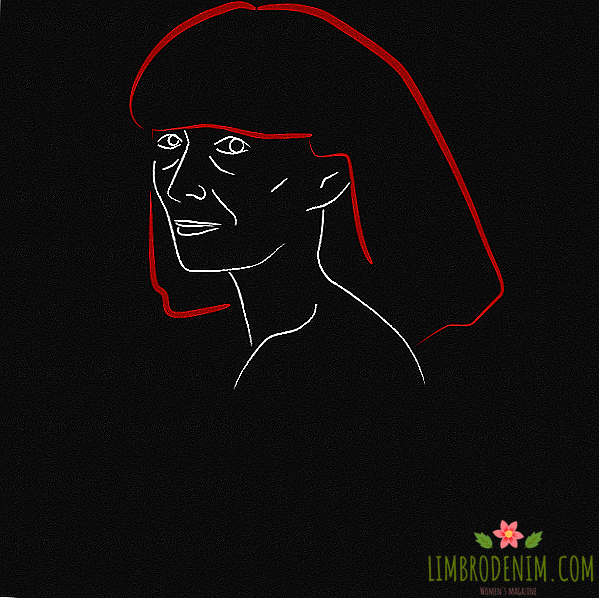“Where is your respect for me?”: How the video of 19-year-old Zera blew up the Kyrgyz social networks
UNFINISHABLE PUBLIC RESONANCE IN KYRGYZIA caused a clip for the song "Kyz" ("Girl"), recorded by Zere Asylbek. Some call it a milestone in the struggle of Kyrgyz women for their rights, others criticize it as "immoral" and urge the performer "not to disgrace the republic." The attacks on Zera are not limited to shaming: today, at least two threats of physical violence are known. One of its authors said that he would “cut off the head” of the girl if she did not delete the clip.
In his song, Asylbek demands respect for women and insists on his right to choose the future for himself. However, most critics outraged not so much the text, as the fact that in the clip Zera appears in a purple bra. This level of exposure in Kyrgyzstan is still not considered socially acceptable: last year, the daughter of the then President of the country, artist Aliya Shagiyeva, who spoke out in defense of public breastfeeding, had to be removed from Facebook - literally harassed her in her homeland.
How did it happen that the clip, in which, by Western standards, there is absolutely nothing shocking and which scored a little more than ten thousand views over the week, caused such an effect and that the reaction to the video speaks about the situation of women in modern Kyrgyzstan?
Zere Asylbek is nineteen years old, she teaches English and works for the non-profit student organization AIESEC. "Kyz" is her first and so far the only song (the girl bought the music for her in the audio stock). The track appeared on the Web two months ago, and then very few people paid attention to it: most of the comments under the video on YouTube appeared in the last few days, after the video was released. The video might also have gone unnoticed if it had not been published by the liberal edition of Kloop, founded by young Kyrgyz journalists and aimed at "covering the most pressing topics, including politics, human rights and corruption." After this video quickly went to social networks.
In a long interview with the Kyrgyz branch of Radio Liberty, Zere said that the violent reaction to the video was not a surprise for her. According to her, young Kyrgyz face regular aggression on the part of conservative-minded compatriots: “People of the older generation — mostly the older ones, I will not summarize — they condemn young people, who somehow express themselves with external things. And this happens every day ... [Recently] I was riding in a trolley bus and noticed how one elderly man said to a boy in shorts (he was fifteen, probably): “Why do not you wear [pants] below the knees? What is this all about? What kind of youth went." looking at eaktsiyu [boy] and I understand that he was ashamed. He simply chose to move away and not say anything. "
The word "kyz" in the song Zere does not sound even once, but for the performer it was important to indicate on whose behalf the declaration of independence was pronounced. In the hierarchy of shame (on this account, the Kirghiz have a common expression “uyat el emne deyt” - “shame of what people will say”) and public condemnation of a young girl takes place at the bottom. “We, Kyrgyz, have a proverb“ Kyzga kyrk үydn tyuu ”, which means“ a girl can be raised by everyone. ”And using this proverb, everyone climbs into the girl’s private life. Starting how you should dress, and ending with how you should treat her dog, ”Tilek Mamytova, a humanitarian worker, said in a conversation with Wonderzine.“ It became the norm in Kyrgyz society to ask a girl why she is not married or openly commenting on her body for all. And Zere wrote a song and made a video with girls, just poke is called a woman as a human being, not a doll, which is trying to meet all of these standards in the country. Therefore, the video and caused such a storm. "
It is not surprising that Father Zere, Asylbek Zhoodonbekov, who was accused by compatriots of having brought up his daughter poorly, also had to enter into the discussion. He told me in a long message on Facebook that although neither he nor the girl’s mother support shooting in lingerie, he respects Zera’s choice: “I don’t impose my demands on my daughter only because I’m her father. If he asks for help, I’ll intervene I myself taught her to make independent decisions when it comes to her studies, work, creativity. "
This point of view in Kyrgyzstan is far from being supported by everyone, although a priori it is also not too true to place on three million citizens of the Central Asian republic the label of an "oppressed woman of the East". Women's rights movements in the country are active and well organized, so that the topic of gender equality remains relevant to the national agenda: in the end, the only woman president in the history of the CIS countries, Roza Otunbayeva, appeared in Kyrgyzstan.
At the same time, many say that Kyrgyzstan is still a country with a very patriarchal mentality. This is also manifested in political life (despite the gender quotas fixed at the level of the law, women in local parties are often assigned the role of formal performers who are not involved in decision-making) and in the economy (labor market opportunities in the country significantly decreased by the end of 2017 , because of which, female unemployment rose to 9%), but above all - in everyday life.
At the household level, especially in the south of the country, traditionally more conservative, a Kyrgyz woman is still considered a supplement to a man. "In Bishkek, women are successful, in demand and strong. They can be both successful businesswomen and loving moms. But in the regions society still thinks that a woman can have no other role than the keeper of the hearth. I don’t say In this question we are at the level of the Stone Age. But women often cannot spend money on their own, husbands decide which friends are suitable for them, ”says blogger Inabat Latipova.” I sit on Twitter, and there all men are well done: and instead of wife they will sit with the child and the dishes will be washed. There is no such practice. If a man touches household chores, he will immediately become a henpecked. "
Hence the widespread practice of forced early marriages, and the relatively condescending attitude to the officially forbidden rite of “bride kidnapping”, which sometimes has tragic consequences: in May 2018, the 20-year-old Burulai Turdaaly kyzy was killed by people who had murder, the prosecutor's office imputed "negligence."
Today’s Kyrgyzstan is at a crossroads: the confrontation between Westerners and traditionalists, whose fault line is not necessarily generational (Wonderzine’s interlocutors note that among those who criticized the same Zere video clip, many young people, both men and women), added in recent years the rapid Islamization of the country, and quite radical. Secular Kyrgyzstan is trying to curb her: last year, President Almazbek Atambayev (in November 2017, he resigned) ordered to finance the installation of billboards depicting women in national Kyrgyz costumes and a veil and the signature “Poor people, where are we going?”. However, they are unable to compete with money from Middle Eastern Islamic countries (Saudi Arabia, Kuwait, Qatar).
Video Zere Asylbek, where girls in a bathing suit, national Kyrgyz clothes and hijab appear at the same time, in a sense, a small collective portrait of several Kirgizians who cannot agree on a common future - and the place of the woman in it.





